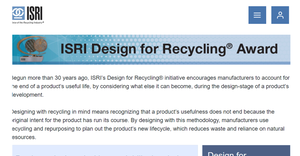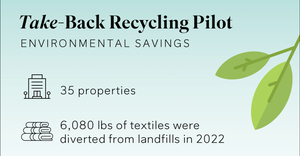Thanks to a new Columbia County, Ore. program, residents have access to an affordable sharps disposal option.
Like in many states in the U.S., it is illegal in Oregon to dispose of sharps in the trash. It also is illegal to dispose of those needles, lancets and other sharps in a coffee can, milk jug or carton other than approved sharps containers, rigid, puncture-resistant, sealed container.
The problem is that containers approved for proper sharps disposal can come at price that can be a deterrent to sharps users. But thanks to a new Columbia County, Ore. program, residents there can pay a one-time $5 fee for such containers. Then users can exchange full containers at the county’s transfer station for an empty one at no charge.
The program, set to begin in October, is modeled after a program in the greater Portland area that has been successful, says Kathy Boutin-Pasterz, solid waste program coordinator and Columbia County’s Land Development Services. The county transfer station, located in St. Helens, Ore., (about 38 miles from Portland) is the only place in the county currently accepting sharps containers, and is therefore the perfect place for the exchange program.
The Environmental Protection Agency estimates that 9 million people in the U.S. use sharps at home. That produces 3 billion disposable needles and syringes and 900 million lancets each year.
Boutin-Pasterz says the county is seeing a steady increase in the number of households using sharps for diabetes and other medical conditions. Proper disposal can be a big financial burden on some residents, who are paying for the sharps containers and then paying to mail those containers to companies for disposal.
“This will help get sharps in the proper container for proper disposal and reduce the financial burden on people who have to use these,” Boutin-Pasterz told the Board of Commissioners at its Sept. 14 meeting.
The disposal program could cost the county an estimated $1,500 to $2,000 annually, according to a memo to the county board of commissioners. Disposal fees collected at the transfer station will help fund the program.
The new program will reduce the number of needles that end up in the garbage—or worse, on the ground in public areas and trails, said Commissioner Henry Heimuller at the Sept. 14 meeting. The homeless camps that exist in all of Oregon’s 36 counties have those who use needles either for medical issues or for illegal drug use, he said.
According to the EPA, improper management of discarded needles and other sharps pose a health risk to the public and solid waste workers. For example, discarded needles may expose waste workers to potential needle stick injuries and potential infection when containers break open inside garbage trucks or needles are mistakenly sent to recycling facilities.
Heimuller would like to see the program eventually expanded to possibly include proper disposal containers for those areas as well. Workers, he says, are in danger of needle sticks when the county goes in to do clean up in homeless camps.
“This is a great program,” he said. “It’s a great start.”
The program is available only to residents and households. Medical facilities and other commercial users are not included and are required to work with a medical waste management company, or make arrangements with their garbage hauler for sharps disposal.
About the Author(s)
You May Also Like


